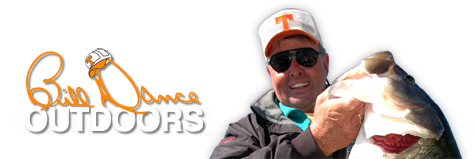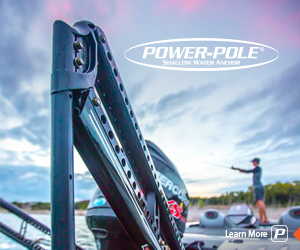Pondering Ponds and LakesPosted: March 13th, 2014 by Bill Dance Some regions of the U.S. are just beginning to feel the warmth of our changing seasons, and we all certainly welcome it. And many of us thought it would never get here. Yep, that darn groundhog saw his shadow this year. It makes me wonder if groundhog would yield some good BBQ ribs? But either way, spring is definitely on the way, and it’s an excellent time to fish some of the small waters, since they often reach optimum water temps sooner than large reservoirs. Thinking of lakes and ponds kind of makes me ponder, pun intended. Some viewers of my show have asked me this question, particularly after I have talked about pond fishing: “What the difference between a pond and a lake?” Now, admittedly, this is not an earth-shattering question. But the more you think about it, the more it could rock your boat…well, a little. If you look up pond in the dictionary, most of the time, it reads, “pond – a body of water smaller than a lake.” On the other hand, if you look up lake, the definition may simply be, “lake – a body of water bigger than a pond.” So…? There’s thin line here, and it basically revolves around this: At what degree of measure does a pond become a lake, or a lake a pond? The answer really does come down to measurements, but not necessarily the way most anglers might think. The answer to the ponderable is really more about a measure of depth than surface area. And the latter is what most anglers are going to consider when they think of the sizes of bodies of water. Biologists claim that a pond must allow sunlight to make it all the way to the bottom of the body of water. Which typically translates to about six feet and this allows vegetative growth on the bottom. A lake has water deeper than six feet, where of course aquatic vegetation is less likely to grow because of sunlight, says the biologist definition. So by this scientific definition, you could have a really large pond, or even a really small lake. It all depends on depth, which influences temperature. Ponds are more stable. Lakes are more likely to stratify. Plants influence dissolved oxygen. And where aquatic vegetation and dissolved oxygen may vary much more in ponds; the combination is more stable in lakes. Again, it’s all about depth and light penetration. A pond is shallow enough where photosynthesis can take place in all its waters. A lake will have “dark waters” areas where light is unable to penetrate as deeply and there is a lack of photosynthesis. Ah, pond or lake? Oh, it’s not that pressing of an issue by any means, but now you know. Heck, my main question about all bodies of water is this: Is the fishing good? (And if yes,) How do I get there? ’Til next time catch one for me!
|
Upload your trophy bass photo (or any other fish) to BillDanceOutdoors.com! Or, post comments about other photos submitted by Bill Dance fans.
Bill Dance is one of the most recognizable names and brands in fishing and outdoor gear. Please browse through our selection of superior products that proudly carry the Bill Dance name.
|





